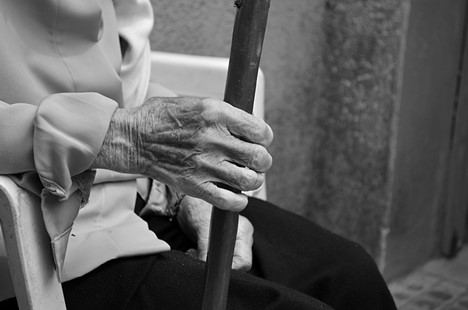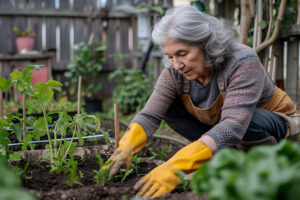For how much people revere their elders, the tragic truth is that older adults are still vulnerable to abuse in the home and caregiving facilities. The CDC estimates that around 10% of older adults experience abuse. June 15th is World Elder Abuse Awareness Day, so this is the perfect time to get up to speed on the topic and find out what you can do if you suspect that someone you know or love is experiencing elder abuse.
Understanding Elder Abuse
It’s important to understand that elder abuse can be physical, mental, social, or financial in nature. Some older adults experience physical violence, while others have a family member or loved one who neglects them or exploits them for monetary gain.
Some illnesses, physical conditions, or disabilities can make it hard to recognize when elder abuse is happening. That’s why you should stay informed about the signs of elder abuse and stay connected with your loved ones so they can communicate clearly and honestly with you when something isn’t right.

Seeing the Signs of Elder Abuse
The signs of elder abuse are different from what normal aging looks like. Physical abuse may appear as follows:
- Unexplained cuts, bruises, or burns
- Sexually transmitted diseases
- Bleeding or injury in intimate areas
- Inability or unwillingness to address new injuries or conditions
Physical abuse is often easier to spot than neglect and financial exploitation. However, it’s important to keep an eye out for these signs:
- Sudden weight loss
- Change in behavior
- Lack of basic hygiene
- Alarming bank withdrawals
- Insufficient care regardless of financial stability
Elder abuse is often intentional, but it can also be unintentional. When people are experiencing extreme stress, they may lash out or project their feelings onto an elder in their care. Knowing these signs can help you decide when it’s time to act.
Taking Action To Protect Older Adults
If you notice any of the signs of elder abuse, talk to your loved one as soon as possible. Bring them to a private place or arrange for a one-on-one conversation so that you can get their perspective on the issues you’re noticing. Remember that they may not feel safe in their environment, but you can offer to take them out to lunch or for a recreational trip and use the opportunity to learn more.
It’s not a good idea to confront the person you suspect of abusing your loved one because that may place them at risk of retaliation. Instead, contact the local authorities. The government empowers the Department of Adult Protection Services to handle elder abuse cases. You can find your state and city resources by using this online tool.
Transitioning To Assisted Living With Dignity
If you or a loved one feel overwhelmed with daily tasks and healthcare needs, it may be time to consider the transition to assisted living. Choosing a community with a mission of providing dignified and holistic care can make the change easier and more enjoyable. Explore your options by scheduling a visit to one of Elder Care Alliance’s communities today and discover how our caregivers make a difference.



















